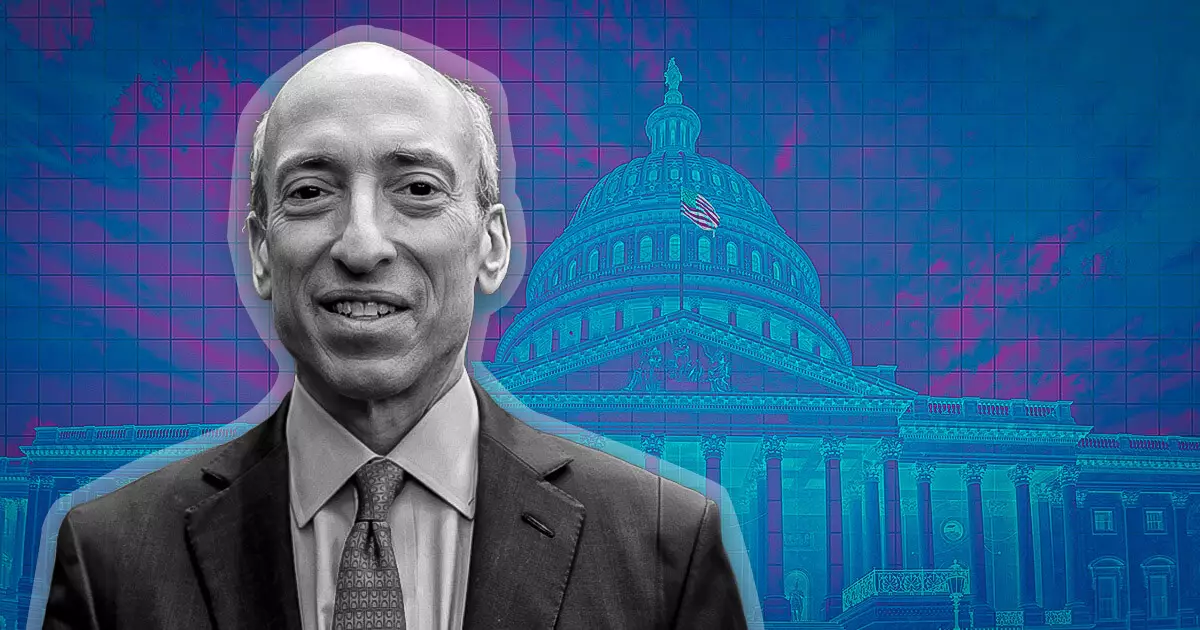The leadership of Gary Gensler as the chair of the U.S. Securities and Exchange Commission (SEC) has drawn sharp criticism from various sectors, particularly the cryptocurrency industry. Tyler Winklevoss, co-founder of crypto exchange Gemini and an erstwhile Olympic rower, has expressed vehement dissatisfaction with Gensler’s approach. In a post on social media platform X, Winklevoss argued that Gensler’s actions cannot simply be brushed off as honest errors. Instead, they are seen as calculated moves to advance a personal political agenda—one that has allegedly come at the expense of innovation and progress within the cryptocurrency domain.
This strong stance taken by Winklevoss is emblematic of a broader narrative asserting that Gensler’s oversights have had dire repercussions. Accusations of malice linger around Gensler, with critiques labeling him as “evil,” a term indicating not just disagreement but a moral indictment of his regulatory practices. Winklevoss highlights the severe fallout from Gensler’s policies, citing the potential devastation to an entire industry, loss of countless jobs, and the jeopardizing of billions in invested capital. Such rhetoric suggests that these bold actions are not merely regulatory in nature but are viewed as an existential threat to an entire ecosystem thriving on innovation.
The conversation surrounding Gensler’s regulatory approach extends beyond mere dissatisfaction; it underscores a fundamental shift in how governmental bodies interact with emerging industries. The purported intention behind Gensler’s policies raises questions about the priorities of regulatory frameworks designed to protect consumers and promote healthy market environments. Winklevoss himself lamented the supposed betrayal of American taxpayers, who feel that their contributions are being misused by a government allegedly meant to safeguard their interests while instead wielding power to quash potential financial growth.
Indeed, the ramifications of Gensler’s tenure could be significant, as Winklevoss argues that any apology from Gensler would be insufficient to mitigate the damage. The critique doesn’t stop with Gensler; it points fingers at the entire SEC for what some have labeled “gross government overreach.” This has been echoed in the legal actions taken by 18 U.S. states against the SEC, illustrating a growing discontent with governmental authority and its perceived overstepping into the crypto sphere.
The call for accountability from individuals like Winklevoss paints an urgent picture for the future of cryptocurrency regulation. He vehemently declared that Gensler should not hold a position of influence again, suggesting that letting Gensler continue in any capacity would mean further risks to the crypto industry. This perspective reflects a broader disenchantment among technological innovators and investors who feel sidelined by a government that is supposed to encourage enterprise and foster economic growth.
Winklevoss’s views resonate not just within the crypto community but also attract attention from political spheres. The former President Donald Trump has indicated intentions to remove Gensler if he returns to the White House, and campaign contributions from Winklevoss and his brother further tie their grievances to the political climate. While the President does not have the power to dismiss Gensler directly, the potential for change at the SEC nonetheless hangs in the balance, with the agency’s future leadership being a focal point of upcoming strategic discussions.
As the calling for change grows louder, one must question the overall effectiveness of the SEC’s regulatory approach. The landscape of cryptocurrency demands a regulatory model that fosters growth while ensuring consumer protection. It is pivotal for the SEC to reassess its methods and engage with industry leaders to create a collaborative framework. Gensler’s tenure has become a case study on how overregulation can stifle innovation, serving as a warning for future regulators to weigh the consequences of their actions carefully.
In the final analysis, it is clear that the conversations surrounding the SEC under Gensler’s leadership are emblematic of a significant moment in financial regulation. Stakeholders from a variety of backgrounds must contend with the implications of these policies, advocate for a more informed approach, and strive towards a future where government intervention empowers rather than inhibits progress. As calls for reform continue to mount, the hope is that a more balanced regulatory framework will eventually emerge, paving the way for innovation while safeguarding the interests of all.


Leave a Reply